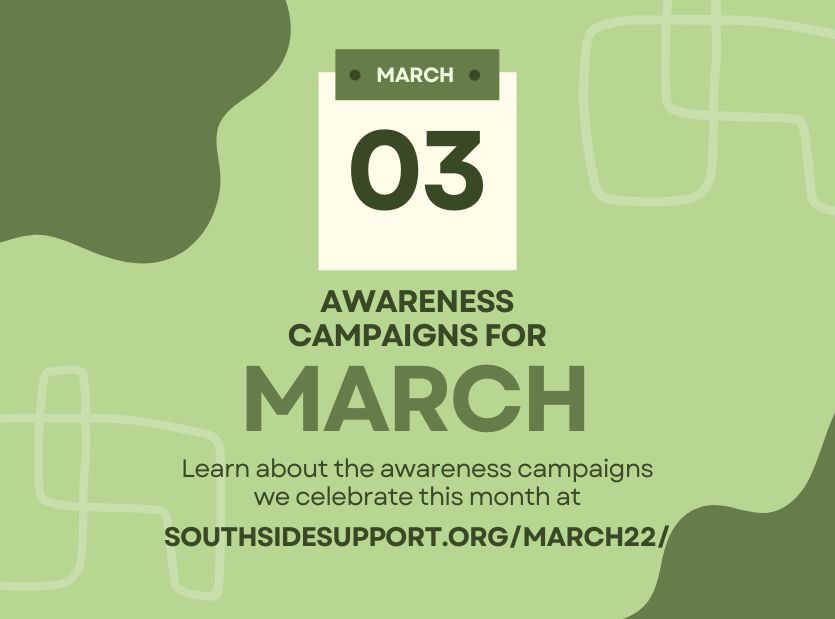The month of March is home to a number of National Awareness Campaigns, including but not limited to Developmental Disabilities Awareness Month, Multiple Sclerosis Awareness Month, National Brain Injury Awareness Month, National Cerebral Palsy Awareness Month, and National Trisomy Awareness Month. To learn more about each of these campaigns, keep reading!
Developmental Disabilities Awareness Month was established in 1987 and works to increase awareness of the needs of those who live with developmental disabilities. Developmental disabilities are often diagnosed early in a child’s life and can impair a variety of developmental areas including learning, behavior, and language. Screening and early diagnosis are key components in limiting the impact these disabilities can have on a child’s long-term development. Developmental Disabilities Awareness Month focuses on raising awareness for these disabilities and highlights the tools available to families who struggle with developmental disabilities.
March is also home to Multiple Sclerosis (MS) Awareness Month. During MS Awareness Month we are encouraged to support the 400,000 individuals nationwide who are diagnosed. MS is characterized by its unpredictable nature in which symptoms can develop overtime and have devastating effects when undiagnosed. MS is a central nervous system disease and affects the brain, optic nerves, and spinal cord. Common signs and symptoms of MS can include difficulty walking and maintaining balance, fatigue, numbness, tingling, and vision issues. To learn more about MS Awareness Month, visit www.mymsaa.org.
National Brain Injury Awareness Month was established in 1993 and raises awareness for the causes and stigmas surrounding brain injuries. Because brain injuries are so variable, no single injury is the same. Brain Injury Awareness Month is dedicated to improving the lives of those with brain injuries by understanding their needs to improve outcomes. To learn more about brain injuries and prevention, visit www.biausa.org.
National Cerebral Palsy Awareness Month aims to bring attention to the different forms of Cerebral Palsy (CP), which are often diagnosed in early childhood. CP is a life-long condition which is based on the extent, type, and location of a child’s abnormalities. CP can occur after birth or in the womb, making it easy to go unnoticed until parents begin to observe missed milestones. While CP is a life-long condition, there are therapies and strategies that can alleviate symptoms. To learn more about National CP Awareness Month, visit www.cerebralpalsynewstoday.com, and wear green in the month of March to support CP Awareness.
March marks National Trisomy Awareness Month, which observes and supports those who struggle with Trisomy conditions. Trisomy occurs when individuals have chromosomal abnormalities, such as extra partial or full chromosomes. These additional chromosomes can cause a variety of health concerns, including learning difficulties and developmental delays. There are multiple types of Trisomy, including Trisomy 21(Down Syndrome), Trisomy 18 (Edwards Syndrome), and Trisomy 13 (Patau Syndrome). To learn more about the different types of Trisomy and National Trisomy Awareness Month, visit nichd.nih.gov.

